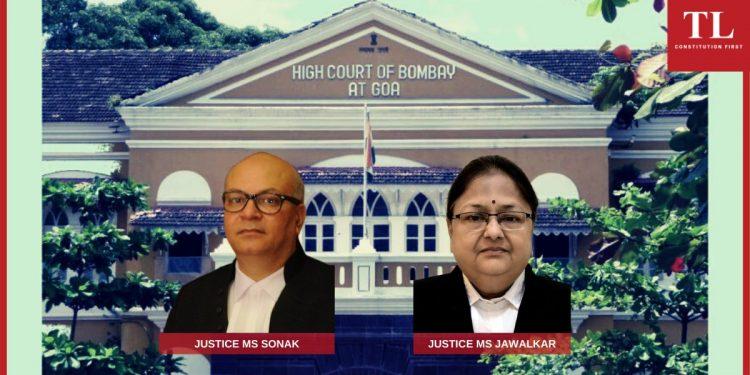Bombay HC Criticises Goa Police for FIR Against Musicians for Hurting Religious Feelings Based on Vague Complaint; Quashes FIR

THE Bombay High Court Friday severely criticized the Goa police for hurriedly and without application of mind lodging a First Information Report (FIR) against nine persons belonging to an art-rock live performance project known as “Dastaan LIVE” for allegedly hurting religious feelings.
A division bench of Justices MS Sonak and MS Jawalkar, while quashing the FIR against the petitioners, described the case as one where the complaint or the FIR did not disclose the commission of any offence.
“The basic ingredients necessary to invoke the provisions of section 295-B of the IPC are totally missing. Besides, we are satisfied that this is a case where the criminal process has been abused by the respondents by registering the FIR based upon a vague complaint”, the bench said.
Section 295-A deals with “deliberate and malicious acts, intended to outrage religious feelings of any class by insulting its religion or religious beliefs”.
The band, Dastaan Live, had performed at the Serendipity Arts Festival in Panaji on December 17, 2019. One song performed by the petitioners’ band was the “Mantra Kavita” by Vaidyanath Misra (widely known as Baba Nagarjun), which was originally composed in the year 1969.
A day later, a Delhi-based advocate, K Venkat Krishna, filed a complaint alleging that the band had committed “blasphemy” and hurt the “sentiment of hundred crores of India and few million abroad”.
Following the complaint, the Goa police summoned some of the petitioners to the police station “to issue an apology”. When they refused to tender an apology, they were placed under arrest, and some of the other petitioners had to secure anticipatory bail to avoid the arrest.
Taking strong exception to the conduct of the police, the high court said they should not have called citizens to the police station and demanded an apology of this nature.
Referring to the decision of the Supreme Court in Arnesh Kumar vs. the State of Bihar and another, the high court opined that there was no justification whatsoever for arresting the petitioners who were members of the band and who had been performing all over the country, unhindered.
The top court in the Arnesh Kumar case had issued certain guidelines on arrests where punishment for the crime alleged to be committed was seven years or less.
Referring to the complaint, the court said the allegations in the complaint, which constitute the basis for the FIR, even if accepted in their entirety, did not even remotely point to the ingredients of Section 295-A of IPC.
In the first place, the court said, there were no allegations about any deliberate or malicious intentions of outraging the feelings of any class of citizens of India. There were no allegations of insult or attempts to insult the religion or the religious beliefs of that class.
“To simply allege that “OM” which is a symbol of the complainant’s faith “in negative narrative” or “abusing people chanting the OM and followers of Hindu stream as Ullu ke Patta” is by no means sufficient to spell out the ingredients of Section 295-A of the IPC”, the court said.
To allege “blasphemy of my religion and sentiment of hundred crores of India and few million abroad” also does not spell out the ingredients of Section 295A of IPC, the court pointed out.
Chiding the police for hurriedly acting on the complaint, the high court said police authorities were expected to be sensitive in such matters, because, what was at stake is the freedom of speech and expression.
“The complainant chosen to take a sentence here and a sentence there or rather, a word here and a word there and on such basis filed a vague complaint which does not even spell out the basic ingredients of section 295-A of IPC”, the Court said.
“Besides, the police authorities have completely ignored the dictum of the Hon’ble Supreme Court which provides that the effect of the words must be judged from the standards of reasonable, strong-minded, firm, and courageous men and not those of weak and vacillating minds nor of those who scent danger in every hostile point of view”, the high court added.
It agreed with the petitioners that this was an unwarranted assault on creativity and freedom of speech and expression itself and hoped the police would refrain from acting in this fashion in future.
Originally Published in The Leaflet
Get the latest reports & analysis with people's perspective on Protests, movements & deep analytical videos, discussions of the current affairs in your Telegram app. Subscribe to NewsClick's Telegram channel & get Real-Time updates on stories, as they get published on our website.














